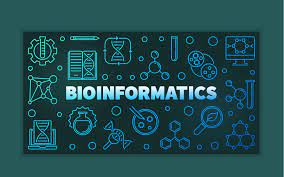The role of bioinformatics in healthcare improvement
Apr 07, 2023
This essay discusses the role of bioinformatics in healthcare improvement. Bioinformatics is the science of using computers and mathematics to analyze biological data, such as genetic sequences, protein structures, and metabolic pathways. It has become an increasingly important tool for understanding diseases and medical treatments.
Bioinformatics is being used to provide better diagnostics, treatments, and outcomes through improved data analysis capabilities. By combining large datasets from different sources into a single database environment, researchers are able to more easily identify patterns in health information that can help them develop more effective therapies. For example, by analyzing genomic sequence data, doctors can better predict how a particular drug will work on a patient's individual genetic makeup or how the effects of certain environmental factors may influence treatment outcomes. In addition, bioinformatics can help clinicians and researchers compare treatments across different populations and determine which therapies are most effective in a particular patient population.
Bioinformatics is also being used to develop new predictive models for diseases and medical conditions that can help physicians make more informed decisions about treatment. By combining data from multiple sources, such as genetics, lifestyle habits, environmental factors, and medical history, these models can be used to predict the likelihood of certain illnesses or complications. This type of predictive modeling can enable healthcare professionals to proactively identify potential risks or illness before it becomes an issue for patients.

Finally, bioinformatics is being used to improve healthcare quality and efficiency by optimizing existing processes and procedures. Artificial intelligence algorithms have been used to automate certain processes, such as patient scheduling and medication dosing. This can improve the overall workflow of healthcare organizations, resulting in more timely patient care. Additionally, bioinformatics can be used to identify areas where improvements can be made in order to provide better outcomes for patients.
In conclusion, bioinformatics has become an invaluable tool for improving healthcare quality and providing better outcomes for patients. By combining data from multiple sources and utilizing predictive models, physicians can make informed decisions about treatments, while healthcare organizations can optimize their operations and ensure that they are providing the highest level of patient care available. As technology continues to evolve, it is likely that bioinformatics will continue to play a critical role in improving healthcare systems around the world.
